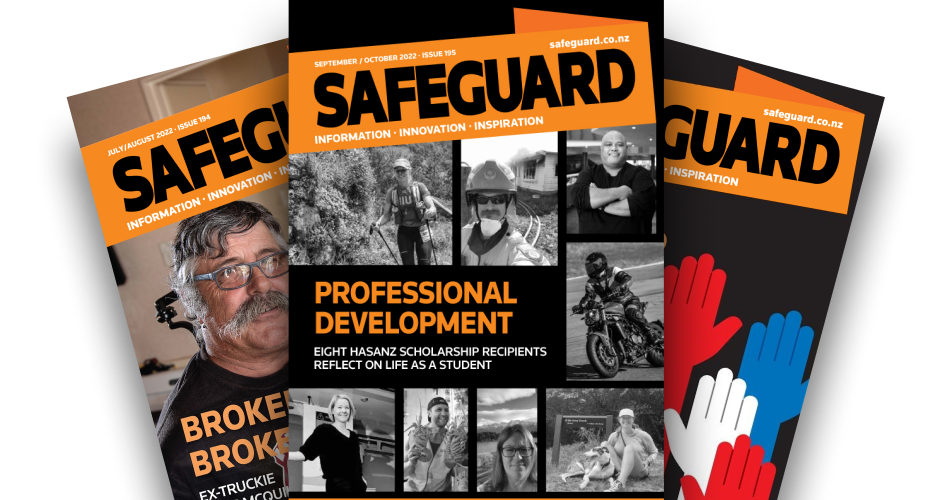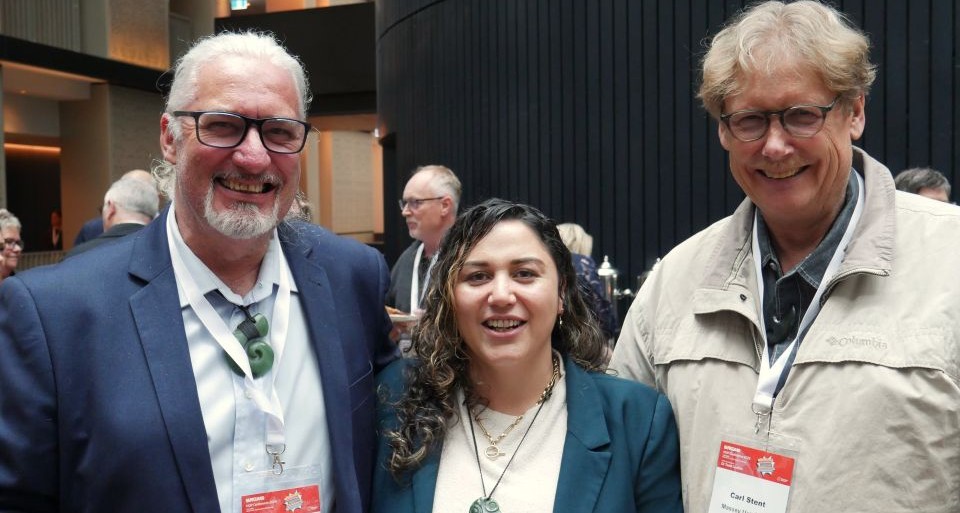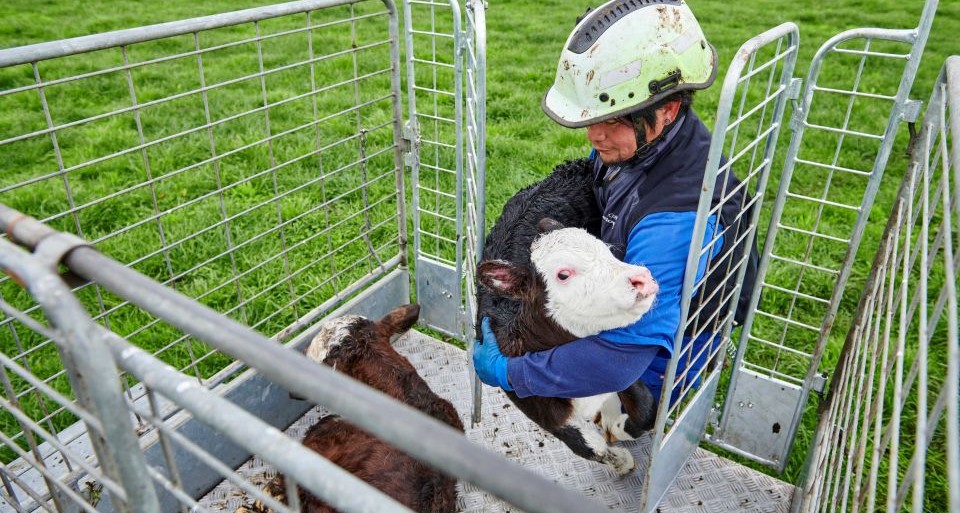Gisborne born and bred, Jessie Bourke left town to study a Bachelor of Health Science (with honours) but came back to work for the DHB before taking an administrative role with local forest management company Logic Forest Solutions. After a couple of years that had morphed into a formal health & safety role.
Now three years into it, I suggest to her that health and safety has changed her life. She enthusiastically agrees. “It wasn’t what I went to university for, but while doing the admin role I just fell into it. It’s been a wonderful journey.”
As part of her admin role she was sent out onto sites to help her understand how forestry works. It was 2018 and the company was grappling with the relatively new HSW Act, so she was tasked with reading the legislation and checking the company was following it. The company was happy to send her on courses to build her knowledge and bring it back into their systems.
“I’m out in the forest half the time, and that’s really important to build understanding. It’s one thing to sit in an office and write some words, but it’s another thing to understand what that means for people with boots on the ground. Being on site is hugely valuable. And I don’t just stand on the hill and look down.”
She’s been made welcome everywhere, despite there being few women in forestry.
“I’ve had nothing but positive experiences from everyone in the bush. They are professionals and they do the best they can in the circumstances they encounter.”
She has custom-made pink hi-viz gear, which in the largely male world of forestry is a unique sight. “It’s a bit tongue in cheek, but everyone can see me coming.”
Pandemic pivot
When the Covid pandemic struck in March 2020, Logic Forest Solutions’ work largely dried up – no one was out planting or harvesting or need stuff transported. But out of crisis comes opportunity. The Provincial Growth Fund and Tairawhiti Redeployment Programme funded the Gisborne District Council to engage in substantial infrastructure works across the East Coast. Bourke was contracted as junior H&S assistant but within six weeks had taken over the senior role.
The nine months of work was significant, involving 400 workers from 32 contractors. There were no LTIs across all contractors (arborists, cartage, roading, engineering, traffic management) and she helped them build their health and safety capacity and improve their systems.
Bourke says it was an incredible experience and a privilege to help develop so many local small enterprises. “These tier 3 organisations had the opportunity to flex and show the council and Waka Kotahi they had good procedures and methods and can play in the same sandpit as the big boys.”
The council was sufficiently impressed that it split its road maintenance contracts into seven parts and awarded five of the new contracts to local firms.
“I was really proud of them. We spent a lot of time working with them, one-on-one, to improve their businesses from all sorts of aspects – H&S, employment, methodologies. It’s a massive win for the community.”
It was also a win for many individuals, as part of the PGF mandate was to ensure people had opportunities to thrive, perhaps people who hadn’t been in the workforce for a while or who faced personal life struggles.
“We helped to give them a safe space to explore their skills. Some of them have worked their way through the ranks, they’re on graders or are qualified hazardous tree removalists. That’s really cool.”
Contractor challenge
Nothing if not flexible, Bourke has also been contracted to assist a local forestry contractor to become Safetree-certified. One of its people had been killed but the company hadn’t been able to learn and make changes. Working with the 40-strong crew, and starting from scratch, she worked hard to get to know the people and to improve their H&S systems.
“They’ve been my toughest crew to work with, but also the most rewarding.”
She recalls turning up to her first day on their site at 5.30 in the morning. She got out of the car and approached the site foreman, who told her he hadn’t realised that H&S people ever got out of their vehicle. It spoke volumes about their previous experiences with H&S.
“I didn’t try to change everything all at once. That wouldn’t have helped. It was about taking them on a journey and working through it with the foreman and the owner and all the workers to change the culture.”
Three years on, she says, the changes are incredible. They are now almost fully mechanized, they do well in regular audits, they have won awards, and they are now Safetree-certified. Staff turnover is well down, and positive drug and alcohol tests are far fewer. Perhaps most important, workers now feel they can speak up when they don’t feel comfortable with a developing situation.
“It’s been a massive shift. It was their journey to go on, and I had a lot of help from Safetree. It was listening to the guys carefully and giving them the tools to make the changes themselves.”
On the council
Bourke is also a member of the Eastland Wood Council, a group comprising forest owners, forest managers, contractors and others. Starting out on the drug & alcohol committee, she also joined the health, safety and wellbeing committee and this year co-chairs it, reporting to the governance board. She values the role for its ability to help break down silos in a sector notorious for operating within them.
“It’s a collective health and safety training group. We discuss what’s going on – the good, bad and ugly. The incidents and what we can learn from them. We only had three to five people turn up to meetings but now we regularly get 10 to 15 sitting around the table.”
A current project is using the collective power of the Council to source mental health services in the Gisborne region, working alongside external mental health advocates to create more resources.
“Mental health wasn’t talked about a couple of years ago and now it’s a big part of our roles – and that’s a good thing.”
Making a pitch
We can’t keep talking for too long because Bourke – who in 2021 was awarded a study scholarship through Impac and NZISM Emerging Safety Leaders – is working hard to complete a set of assignments to finish the first year of her NEBOSH diploma.
“It’s pedal to the metal. It’s a wonderful learning opportunity to do some formalised training in health and safety.”
To finish, I ask her how she would pitch health and safety as a career to a group of young people. Unfazed, she delivers this oration off the top of her head.
“Health and safety is an incredible opportunity to engage with people in different environments every day and to make small or big steps to make sure they go home to their families. It has moments of high stress, but it’s all about people. So if you’re a people person, health and safety is easy because you want people to succeed. It’s a really rewarding career.”
What’s next for Jessie Bourke?
“Another year of NEBOSH and exams. And keeping on taking health and safety girl power to the world!”




